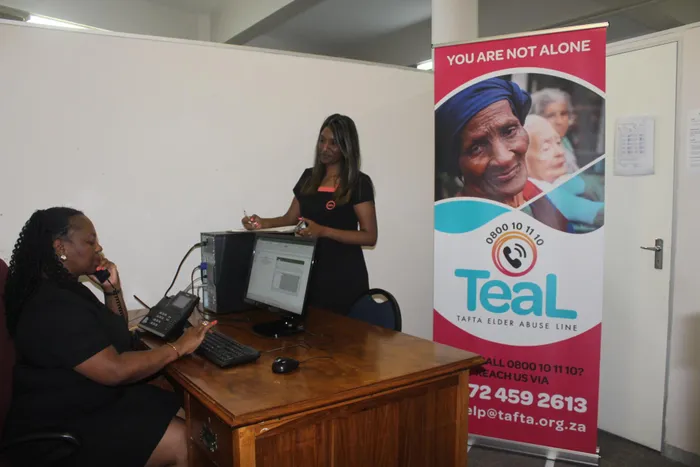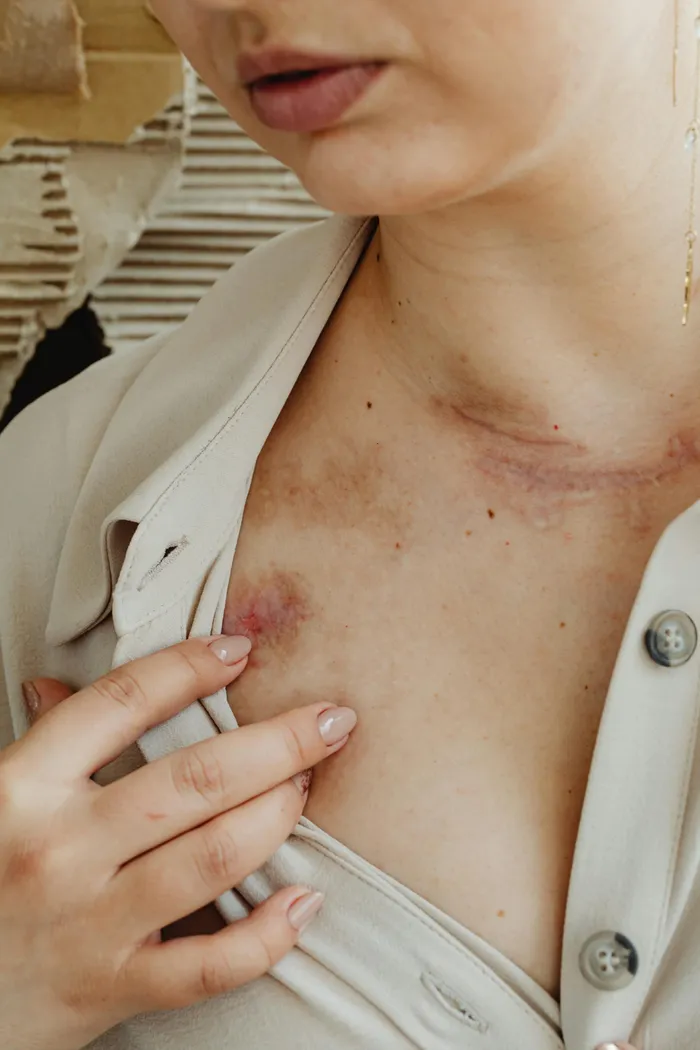
The Association for the Aged (TAFTA) supervisor Mennessa Peters and councillor Peal Maphumulo man the elder abuse hotline operated by the organisation.
Image: Supplied
In a significant stride towards safeguarding the elderly, the Association for The Aged (Tafta) has unveiled major upgrades to its national Elder Abuse Helpline to commemorate its three-year anniversary. The enhancements include a refreshed visual identity, the introduction of a dedicated WhatsApp support line, and an email channel, all aimed at expanding access to help for older individuals facing abuse across South Africa.
Since its inception on November 23, 2020, the helpline, now known as the Tafta Elder Abuse Line (TEAL), has been a beacon for many, receiving 4,293 calls and facilitating 1,003 referrals to social workers, community service centres, SAPS units, and specialised elder care partners. The statistics reveal a pressing demand for support services, with Tafta’s CEO, Femada Shamam, asserting the organisation's pledge to protect vulnerable seniors.
“Elder abuse remains one of the most under-reported violations in South Africa,” Shamam stated. “Our enhanced reporting channels give older persons, caregivers, and communities multiple safe ways to reach us. Help must always be accessible, immediate, and confidential.”
The newly refreshed service features include a new logo symbolising hope, safety, and trust. Importantly, the WhatsApp line (072 459 2613) enables elders and community members to report abuse, ask questions, and receive immediate support in real time, while the newly established email address (help@tafta.org.za) caters to those who prefer written communication or require comprehensive assistance.
The call trends since the launch of TEAL have highlighted disturbing patterns, with financial exploitation, emotional or psychological abuse, and neglect emerging as the most common forms of abuse reported. According to Carmel Murugen, Divisional Manager of Research, Strategy, and Development, these reports have poured in from communities throughout South Africa, indicating a pervasive issue that necessitates easily accessible support.
“We are pleased that TEAL has reached all nine provinces since its inception, with the majority of reports coming from KwaZulu-Natal, Gauteng, and the Western Cape. With the new additions to the service, we are hopeful that our reach will extend even to the Northern Cape, Eastern Cape, Limpopo, and the Free State, enabling us to better track and understand the prevalence of elder abuse nationwide,” Murugen added.

TAFTA says many older people fear reporting abuse because they rely on the people who may be harming them. By expanding access to help through WhatsApp and email, the organisation is ensuring elders are not left to suffer in silence.
Image: Pexels
Yoshina Kistensamy, Divisional Manager of Operations, underscored the crucial role of the new communication channels. “Many older people fear reporting abuse, as they depend on the very individuals who may be harming them. By broadening access through WhatsApp and email, we are lowering barriers, facilitating easier reporting, and ensuring elders do not suffer in silence.”
The Tafta Elder Abuse Line remains a free national service available to anyone seeking guidance or immediate support concerning the abuse or neglect of older individuals. Managed by qualified social workers adept in elder abuse intervention, the service offers confidential counselling, guidance on how to report abuse, crisis support, and direct referrals to appropriate services throughout the country.
“Protecting older persons is a collective responsibility,” said Shamam. “Every call, every WhatsApp message, every report aids us in safeguarding someone's dignity, safety, and wellbeing.”
IOS
Related Topics: